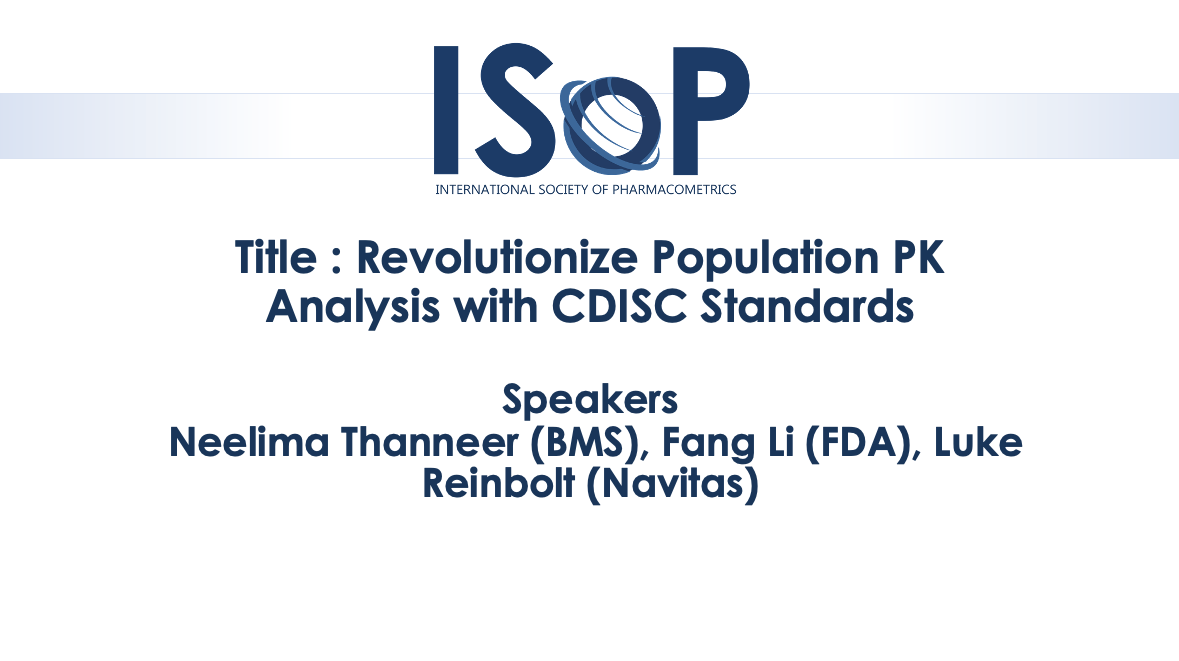Past Events
Estimation and Variable Selection in High Dimensional Setting in Nonlinear Mixed Effects Models
The application and utility of a penalized LASSO-type estimator with an eBIC model choice criterion to select the covariates of interest under conditions of high-simensionality with subsequent estimation of the parameters by maximum likelihood in the reduced model will be reviewed.
Comparison between PD-1 and PD-L1 treatments using model-based meta-analysis (MBMA) and traditional meta-analysis (MA) of objective response rate (ORR), progression-free survival (PFS), and overall survival (OS) in metastatic non-small-cell lung cancer (mNSCLC)
The application and utility of MBMA and MA of immune checkpoint inhibitors to inform decisions on development plans in mNSCLC will be reviewed.
Maximizing on Minimal Data using Pharmacometric Modeling to Estimate the Probability of Technical Success: John Prybylski and Min Zhang
Dermatomyositis, a rare disease affecting skin and muscle tissues, poses unique challenges for clinical trials. Learn how exposure-response modeling helped overcome data limitations in a Phase 2 study of an investigational IFNβ monoclonal antibody, paving the way for further development.
Handling missing covariates in model-Based meta-analysis (Use-case for competitive benchmarking): Rana Jreich and Phyllis Chan
Discussion of statistical approaches to handle missing baseline characteristics in MBMA with a use case example for fenebrutinib in rheumatoid arthritis.
Changes to Population PK/PD data and supplemental information based on FDA Guidance for PopPK
In this presentation the speakers highlight the updates in the latest FDA Guidance for Population PK that impact the PMx Datasets, Report and eSub aspects.
The Decision-Equivalence Metric (DEM) method for Evaluating Surrogate Endpoints for Accelerated Clinical Development Using a Combination of Individual Level and Aggregate Level Literature Data: Chandni Valiathan, John Maringwa and Lixia Pei
Define and explore the decision-equivalence metric (DEM) method that leverages both individual and aggregate data and uses practical approaches to assess surrogate markers for clinical development.
ADA/Immunogenicity Data Handling
We would like to take this opportunity to give an overview of development of anti-drug antibody(ADA), interpretation of immunogenicity data, industry practices of structured data…
Review of proposed NCA ADAM standard
We would like to take this opportunity to give an overview of ADNCA, dataflow considerations and open up for discussion and questions from everyone across the industry.











